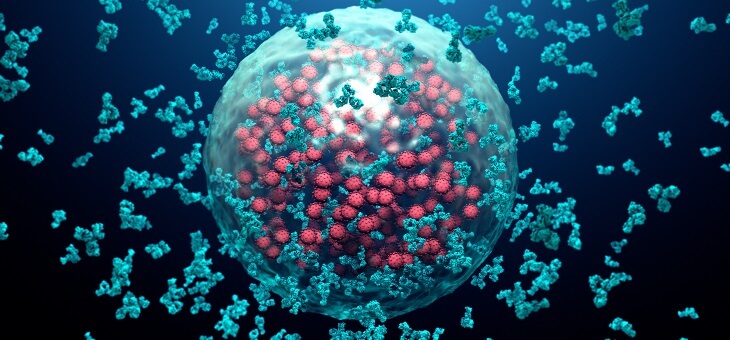Ground-breaking research conducted by Australian scientists may have unlocked a new weapon in the battle against disease – and it’s already sitting within us, waiting to be released.
At the Australian National University (ANU), researchers have been looking at a specific group of bacteria-killing proteins inside the immune system, which could hold the key to developing smarter and more effective drugs capable of eliminating certain infectious diseases including meningitis, pneumonia and sepsis.
The scientists have published the results in Nature in an article titled Pathogen-selective killing by guanylate-binding proteins as a molecular mechanism leading to inflammasome signaling.
Read: Link between vitamin D and autoimmune disease found
It’s a somewhat daunting title but, distilling the article’s message into something more digestible, the research demonstrates the potential of immune proteins, known as guanylate-binding proteins (GBPs), to directly bind to and kill specific types of bacteria.
The beauty of GBPs is that they’re already in our bodies, waiting for their germ-destroying capabilities to be unleashed.
Lead author and PhD scholar Shouya Feng, from the John Curtin School of Medical Research (JCSMR), explains the process as similar to using an axe to split wood. The protein splits open the bacteria’s membrane, and it dies as a result.
Ms Feng said: “Our immune system is equipped with weapons that can destroy germs. When foreign bodies, such as bacteria, enter our body, the immune system triggers a defensive response.”
Read: Research finds fish oil can fight superbugs
“We believe we can extract and harness the power of these immune system proteins, known as GBP1, and use them to treat a range of infectious diseases, without negatively affecting our body’s cells.”
To be able to kill the bacteria with no negative side-effects would be a huge breakthrough.
The ANU research is timely, because disease-causing microbes continue to evolve and adapt, with many becoming resistant to currently available drugs. World Health Organization (WHO) data suggest that drug-resistant diseases already cause about 700,000 deaths globally each year, and that figure is estimated to climb to 10 million by 2050.
Part of the reason for this, explains Ms Feng’s co-author and colleague Professor Si Ming Man, is the explosion in the use of antibiotics.
Read: New study shows exercise can reduce pneumonia risk
“The extensive use of antibiotics to treat a number of different infectious diseases over many years has made them less effective over time because microbes are continually developing resistance to new and existing treatments, meaning they’re staying one step ahead of scientists,” Prof. Man said.
This is where GBPs can come into their own. He says: “We are now finding more and more GBPs that can kill different types of drug-resistant bacteria. This includes bacteria that can cause meningitis, pneumonia and sepsis.”
Prof. Man has grand ambitions for GBPs. “The ultimate goal is to use these proteins to eliminate meningitis, pneumonia and sepsis entirely. Our research could provide alternatives to increasingly over-used and ineffective antibiotics by offering new methods to combat these multi-drug-resistant infections,” he said.
“We expect this work could lay the foundations for a new framework to inform how we can fight continually evolving diseases for decades to come.”
Have you had the need to use antibiotics recently? Did you find them to be effective? Why not share your experience and thoughts in the comments section below?
If you enjoy our content, don’t keep it to yourself. Share our free eNews with your friends and encourage them to sign up.

